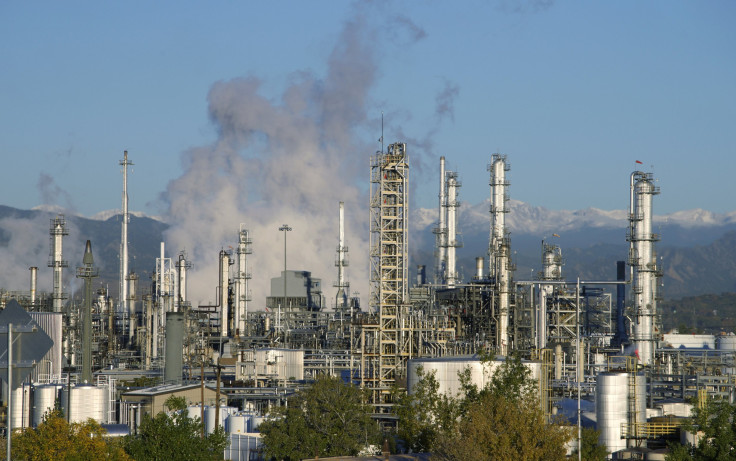Oil Refinery Strike: Steelworkers Strike Against Big Oil At Nine Plants Across The Country

The United States' first nationwide refinery strike since 1980 moved into its third day Tuesday, threatening to spread even as negotiations continue over a new national contract. About 3,800 workers at nine sites walked off their jobs Sunday, after talks broke down between the United Steelworkers and Royal Dutch Shell, which is leading negotiations for the oil and gas industry.
Both sides are back at the bargaining table this week, but if they’re unable to hammer out a new collective bargaining agreement, the work stoppage could spread to other union sites. In all, the USW represents 30,000 workers responsible for roughly two-thirds of the nation’s refining capacity.
Union officials emphasize the strike isn’t about wages, but rather workplace safety.
“Our local union has lost 14 members in 16 years,” said USW Local 12-591 President Steve Garey, whose local represents workers at a striking Tesoro oil-refining facility in Anacortes, Washington. “Quite frankly, we’re tired of co-workers being killed and being subjected to this risk.”
The Steelworkers have pointed to concerns over staffing levels, a lack of workplace training programs and the industry's growing use of nonunion contractors. They say all of these factors contribute to an unnecessarily dangerous workplace.
In addition to Washington, workers are also on strike at five refineries in the Houston area, two plants in California and one site in Kentucky.
“While there are areas where Shell and the USW have common interests, it’s unfortunate that the union has chosen to use a strike as a means to resolve areas where we differ,” a company spokesperson told CNN.
The plants on strike account for about 10 percent of U.S. refining capacity, but the work stoppage hasn’t managed to substantially halt production so far, since companies are using plant managers as replacement workers. That’s only a temporary solution: Under the National Labor Relations Act, workers striking over an “unfair labor practice” are allowed to return to their jobs at the end of the work stoppage.
The last nationwide refinery strike, some 35 years ago, lasted three months.
© Copyright IBTimes 2024. All rights reserved.





















